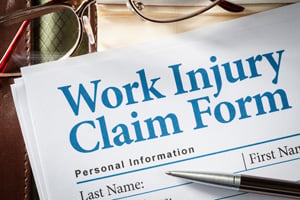
Millions of people are injured in workplace accidents each year, and many victims experience serious and long-term effects as a result of these injuries. Workplace injuries can result in overwhelming medical debt and a significant amount of lost income if the injured individual cannot return to work right away. Moreover, if a person suffers a permanent impairment, he or she may lose a lifetime of earnings and may never be able to enjoy life as they once did.
The workers’ compensation system in your state exists to help provide benefits to injured workers including medical care, income replacement for lost wages, and disability payments. Unfortunately, however, these benefits are often not sufficient to cover all of a victim’s losses. This may be especially true in the case of serious injuries. In such a situation, you may be wondering whether or not you can obtain additional compensation for your injury by filing a legal claim against your employer? Generally speaking, workers’ compensation is the remedy available after a workplace injury, but there are certain circumstances under which a worker may be able to bring an additional claim for compensation, as discussed below.
Accidents Caused by a Third Party
When workplace accidents are caused by third parties (meaning neither the employer nor another employee), victims may be able to file a claim against the person or company that caused their accident. For example, if an independent contractor caused an accident, you may be able to file a claim against that contractor, as no employer-employee relationship exists. Similarly, if your accident was caused by a visitor to your workplace, you will likely be able to bring a personal lawsuit against that visitor.
Accidents Caused by Defective Work Equipment
Another common scenario that may entitle you to sue after a workplace accident is an accident caused by defective workplace equipment. Again, as there is no employer-employee relationship between you and the manufacturer of the equipment, workers’ compensation restrictions on lawsuits will not apply and you may have the right to sue the manufacturer directly. There are many types of equipment that can cause injury, some of which may come as a complete surprise. Importantly, you do not have to be working at a construction site or industrial plant to be injured by workplace equipment. Some of the more common kinds of workplace equipment that can cause injury include the following: Office chairs, Power tools, Vehicles, Office kitchen equipment, Heavy machinery, Containers used to store hazardous materials, specialized footwear, and Electrical equipment.
Intentional Employer Conduct
Furthermore, people who are injured by the intentional conduct of an employer are often able to file a lawsuit in addition to obtaining workers’ compensation benefits. The type of intentional employer conduct at issue in these types of cases are actions taken or decisions made that make it substantially certain that an employee will sustain an injury and that are outside of the kinds of employer conduct that the workers’ compensation law was intended to immunize from lawsuits. For example, if an employer were to remove a safety mechanism from a device to improve efficiency and that removal resulted in an injury, an employee may be able to bring a lawsuit against the employer.
Legal Remedies
Workplace injuries can be devastating and workers’ compensation benefits do not always fully compensate victims for their injuries, For this reason, it is advisable to discuss your circumstances with a personal injury attorney to determine if you are eligible to seek further financial compensation for your injuries.



